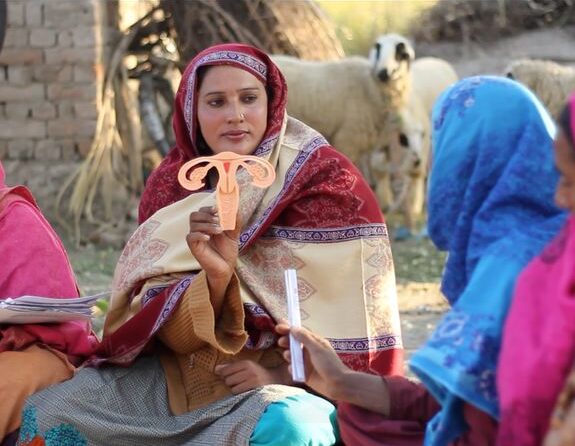The Qadam-Ba-Qadam project, generously funded by the Bill & Melinda Gates Foundation and undertaken in partnership
Overview
In Pakistan, ensuring access to quality healthcare services, especially in the critical period following pregnancy and childbirth, is paramount. The Qadam-Ba-Qadam project, generously funded by the Bill & Melinda Gates Foundation and undertaken in partnership with esteemed organizations including Acasus, the World Bank, the Global Financing Facility, the Society of Obstetricians & Gynecologists of Pakistan, and various governmental bodies, is striving to make a difference. Operating from 2022 to 2025, this initiative is focused on strengthening health systems in four provinces - Punjab, Khyber Pakhtunkhwa, Sindh, and Balochistan - to significantly enhance access to postpartum and postabortion family planning services.
Project Objectives
The primary objective of the Qadam-Ba-Qadam project is to work closely with provincial health departments to institutionalize and scale up high-impact practices, ensuring that women in these regions can access quality postpartum and postabortion family planning services. These services are a crucial aspect of reproductive health and maternal and newborn health outcomes, making their integration into the broader healthcare framework vital.
Key Activities
The project focuses on several key activities to achieve its objectives:
Integration and Institutionalization: Qadam-Ba-Qadam aims to seamlessly integrate and institutionalize postpartum and postabortion family planning within provincial health systems. This involves strengthening the adoption and scale-up of high-impact practices, enhancing coordination and management platforms, and fostering an enabling policy environment for the provision of these essential services.
Behavior Change Communication: To generate demand for postpartum and postabortion family planning, the project works on implementing gender-responsive social and behavior change communication strategies. Collaborating with both the federal ministry of health and provincial health partners, this activity seeks to raise awareness and drive informed decision-making regarding family planning.
Data Utilization: The project recognizes the importance of data in decision-making. Therefore, it focuses on improving the use of data for postpartum and postabortion family planning. This includes integrating relevant data into centralized national reporting systems and ensuring that provincial health departments incorporate pertinent indicators into their data collection and management practices.
Documentation of Learnings: The Qadam-Ba-Qadam project takes a proactive approach to share its implementation learnings. It aims to inform relevant stakeholders about the adoption and scale-up of postpartum and postabortion family planning. Additionally, the project plays a pivotal role in assisting the World Bank and the Pakistan government in integrating these vital services into projects funded by the Global Financing Facility and International Development Association. These learnings are instrumental in shaping the government's roll-out of universal health coverage, particularly the inclusion of postpartum and postabortion family planning within this framework.
The Qadam-Ba-Qadam project represents a concerted effort to ensure that women in Pakistan have access to comprehensive healthcare, even in the vulnerable period following pregnancy and childbirth. By strengthening health systems, fostering awareness, and leveraging data, this initiative contributes significantly to the improvement of reproductive health and maternal and newborn health outcomes in the country. It is a testament to the collaborative spirit of diverse stakeholders coming together to drive positive change in healthcare.


